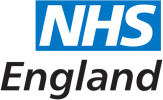Partners & Supporters

Warrington and Halton Teaching Hospitals NHS Foundation Trust
Warrington and Halton Teaching Hospitals NHS Foundation Trust covers three hospitals across two sites: Warrington Hospital. Halton General hospital and the Cheshire and Merseyside Treatment Centre. Each hospital site specialises in particular aspects of care but outpatient clinics and diagnostic services are available at all sites.
The hospital serves a local population of 330 000 people with around 600 beds and 4100 staff . The Trust became a teaching Hospital in 2019 and has invested in new wards, departments and units- from maternity and critical care units to chemotherapy, dementia, endoscopy and ophthalmology facilities. Named as one of the 100 Best Places to Work in the NHS by the Health Service Journal in 2014 staff say they are in the top 20% of engaged staff in the health service.

Northwick Park Hospital
London North West University Healthcare NHS Trust London North West University Healthcare NHS Trust is one of the largest integrated care Trusts in the country bringing together hospital and community services across the boroughs of Brent, Harrow and Ealing. There are 9,000 staff, including 1,300 doctors and 4,000 nurses and the Trust serves a diverse population of approximately 850,000.The Trust was established in October 2014 following the merger of The North West London Hospitals NHS Trust and Ealing Hospital NHS Trust and has an annual budget of over £640 million.
Northwick Park Hospital was officially opened by Queen Elizabeth II 1970.It is home to the hyper-acute stroke unit, one of only eight such units in London. In December 2014 Northwick Park Hospital’s £21m state-of-the art A&E department opened its doors and in January 2016 the new Acute Medical Unit opened providing a total of 63 new beds across the Crick, Darwin and Elgar wards. Medical research, both preclinical and clinical, has been a key feature of the hospital site since the opening and in 1994 the Northwick Park Institute for Medical Research (NPIMR) was formed. By maintaining top-rate research facilities and providing excellence in surgical training, NPIMR ensures the highest standard of science for translation into clinical care.
Northwick Park Hospital also retains complementary and enhanced research activity in several regional specialist units such as the Kennedy-Galton Centre (Clinical Genetics), the Lister Unit (Infectious Diseases) and a Regional Rehabilitation Unit.
St Mark’s Hospital was founded in 1835 and has developed an international reputation as a specialist postgraduate teaching hospital for patients with intestinal and colorectal disorders. St Mark’s is developing a closer academic relationship with Imperial College, in line with the Trust’s academic strategy. The hospital moved from the City Road in central London in 1995 to become an integral part of the Northwick Park site.

Liverpool University Hospitals NHS Foundation Trust
The Royal Liverpool University Hospital, Liverpool University Dental Hospital and Broadgreen Hospital is now part of Liverpool University Hospitals NHS Foundation Trust along with Aintree University Hospitals NHS Foundation Trust.
A brand new Royal Liverpool University Hospital, with the all single bedroom facility is due to open in 2020.
Delivery of patient focused, service led care to the people of Liverpool and North West England is achieved by close working with health and social care partners and by involving patients and staff in research projects, future plans and everyday operational issues.
The Trust is one of the top 20 teaching trusts in the country with well established links to both the University of Liverpool and John Moores University.
Each year it provides a large number of placements for student doctors, dentists, nurses and allied health professionals who benefit from the expertise and experience of skilled clinicians.
The Trust provides a comprehensive range of specialist services to 750,000 people each year within a total catchment population of more than two million people in Merseyside, Cheshire, North Wales, the Isle of Man and beyond.
The Trust is one of the largest and busiest in the North of England seeing almost one million patients every year.
In the past year, it provided emergency and urgent care for over 245,000 people, over 92,000 of whom were in the emergency department. The Trust also cared for over 114,000 day case and inpatients and provided over 600,000 outpatient appointments.
The Trust is a major centre for the diagnosis, treatment, care and research of cancer providing a range of cancer services from the renowned Linda McCartney Centre. It is a regional cancer centre for pancreatic, urological, ocular, testicular, anal, and oesophago-gastric cancers, specialist palliative care, specialist radiology and specialist pathology and chemotherapy cancer treatment services. It is also a national centre for ocular oncology (eye cancer). There are excellent local cancer treatment services, including skin, breast and colorectal, head, neck and thyroid and lung cancer.
The Liverpool University Dental Hospital supports dental teaching and provides specialist dental services and emergency care for the local community.
As one of the largest employers in the city, the Trust employs around 7,600 people and also provide services through outsourcing arrangements. The annual budget is over £530 million.

Palliative Care Institute Liverpool
Palliative Care Institute Liverpool was founded in 2004. It is a partnership between The Royal Liverpool and Broadgreen University Hospitals NHS Trust, Marie Curie and the University of Liverpool.
The Institute’s mission is to be a centre of excellence and an international leader in care for the dying from bedside to policy through service innovation and improvement, research and development, and knowledge transfer. It enables clinical excellence that makes a real and sustained difference to dying people and their relatives and carers, in order to influence those who shape and deliver healthcare for the dying.
Its strategic priorities are:
- Service improvement that drives up sustained quality and productivity
- Research and Development that makes a difference to patient care
- Knowledge transfer rooted in research excellence
- Clinical excellence in care of the dying
- International collaboration

Ariadne Labs
Based in Boston, USA, Ariadne Labs focuses on the most critical moments in people’s lives: childbirth, surgery and serious illness care. It is a joint centre between Brigham and Women’s Hospital and the Harvard TH Chan School of Public Health at Harvard University, both charitable non-profit organisations. The leadership team includes Dr Atul Gawande.
Ariadne Labs’ mission is to create scalable healthcare solutions that produce better care at the most critical moments in people’s lives, everywhere. These solutions or tools are simple, practical and designed to have global impact.
Its vision is to ease suffering, optimise patient choice, and save lives, everywhere. Its programmes and projects are at varying stages of development, from prototyping to wide-scale dissemination around the world.
https://www.ariadnelabs.org/
NHS England
NHS England is the body responsible for Clinical Commissioning Groups (CCGs) nationally, and has a statutory role planning and funding health services. The organisation also sets the priorities and direction of the NHS.
NHS England is funding a one-year pilot of the Serious Illness Care Programme UK at Airedale in Yorkshire and Southend in Essex, two of the integrated care pioneer sites within the new care models programme. (The NHS England pilot is in addition to the programme running at The Clatterbridge Cancer Centre in Merseyside, which is the lead site.)
The new care models programme is delivering a key element of the Five Year Forward View – the shared vision for the future of the NHS, published in October 2014 and developed by the national partner organisations: NHS England, the Care Quality Commission, Health Education England, NHS Improvement, Public Health England and the National Institute for Health and Care Excellence.
https://www.england.nhs.uk/
NHS Airedale, Wharfedale & Craven Clinical Commissioning Group
NHS Airedale, Wharfedale and Craven CCG is a group of local doctors and other health professionals that work together to plan and commission health services for their local population – approximately 156,000 people.
This includes healthcare delivered in hospital, community and mental health services. The CCG also has a responsibility to ensure that the services it buys are safe, clinically effective and value for money.
To achieve this, it works in partnership with a wide range of healthcare professionals, voluntary and community services, and its two local authorities – City of Bradford Metropolitan District Council and North Yorkshire County Council.
Airedale, Wharfedale and Craven CCG’s vision is to deliver proactive, coordinated, person-centred care with its health and care partners across its communities. It aims to develop the very best services that meet the needs of its local population so it can deliver this vision within its budget.
http://www.airedalewharfedalecravenccg.nhs.uk
NHS Southend Clinical Commissioning Group
NHS Southend CCG is a clinical commissioning group – a group of GPs and clinicians which commissions (buys) health services for their local communities – in south Essex. It covers a population of approximately 185,000 in Southend, Leigh, Westcliff and Thorpe Bay, with 35 member GP practices.
NHS Southend CCG is committed to ensuring the delivery of local, high quality services that meet the specific needs of its population. With more than 18,000 patients over the age of 75, one of its priorities is to help improve care for those with long-term conditions who often make unplanned visits to hospital.
It works closely with Southend Borough Council to ensure a joint approach to health and social care for the residents of Southend. The ultimate aim is to improve the care received and the patient experience while reducing inefficiencies. The CCG’s key objectives are personalisation, integration, and ‘right care first time’.
http://southendccg.nhs.uk/

